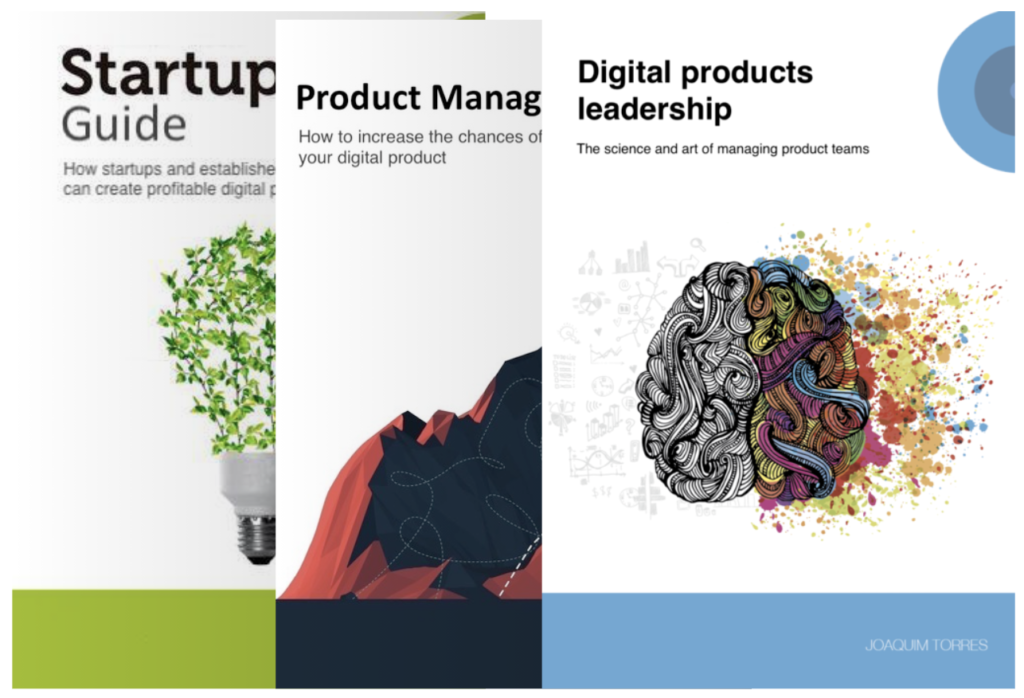Transparency, the foundation of a high-performance team
2 de December, 2020Release early and often
15 de December, 2020I have seen demonstrations of diversity with increasing frequency. I’m not much into watching TV, but one day in 2017 I ended up watching a little bit of TV Globo, the biggest Brazilian TV network. I watched the end of Jornal Nacional and the beginning of the soap opera. In Jornal Nacional, I saw a report about PUC in São Paulo opening unisex bathrooms – remembering that PUC is Pontifical Catholic University, a university linked to the Catholic religion. Then, in the soap opera, a character was telling her parents and family that she was born in the wrong body, that he was a man who had been born in a woman’s body, that is, that he was transgender. Then, during the break, came the Globo campaign entitled “Everything starts with respect” about respecting gender identity.
That’s really good! Accepting and respecting differences is the basis for evolving as a society and building an ever better future for us, for our children and for all of humanity.
When respect and the ability to accept diversity are lacking, very bad situations can happen, for example, of parents rejecting their own child. I was very impressed when I read the report by Daniela Andrade, a senior consultant at ThoughtWorks, where she says:
“As I was expelled from my parents’ house, for being transsexual – and here I say that the first great violence that we suffer is at home – for many years I have no relatives to count on in times of need, everyone turned their backs on me.”
How is it possible for a parent to reject his own daughter? I am a father and I know how the love of a parent is something very intense, capable of overcoming any problem so that we can always help and support our children. I was talking the other day with my wife about this story and about the difficulty people have in accepting differences, to the point of rejecting their own children. It was at that moment that my wife said a phrase that marked me. She said that ultimately, everyone is different. Transgender, cisgender, heterosexual, homosexual, bisexual, asexual, black, white, yellow, young, adult, middle age, senior citizen, brazilian, canadian, french, vietnamese, fluminense, paulista, carioca, belo-horizontino, runner, cyclist, swimmer, engineer, architect, lawyer, who likes pop, rock, jazz, classical and so on. Even identical twins are different.
If all people are different, accepting and respecting differences is not only desirable, it is necessary and mandatory so that we can live in a society in a more harmonious and sustainable way. These are values ​​that must be taught to all people from birth.
And what does diversity have to do with digital product management?
In addition to the importance of accepting and respecting differences to help create a more harmonious and sustainable society, diversity will help create better digital products for two reasons:
- Diversity brings new points of view. Having a more diverse product development team brings new points of view and new ways of thinking, which will help to develop a better product. It is no wonder that the product development team is comprised of software engineers, user experience designers, and product managers. Each person has different views of what a good product is and these differences, when worked well by the team, are what help to create a better product.
- Just as the group of customers using your software is diverse, so should your team. Usually, software product development teams are mostly male, but the population of any country is more diverse. Both at Conta Azul and Locaweb, more than 88% of the team was composed of men. But these teams make products that will be used by the Brazilian population, which is made up of 48.2% men and 51.8% women according to IBGE (Brazilian Institute of Geography and Statistics). It is also worth remembering that the division between “men” and “women” is simplistic and that gender diversity is non-binary, that is, there are other gender identities besides female and male.
That is why it is so important to reflect and talk about diversity. Only then you will be able to think about issues so essential to the success of your product. How to improve the diversity of your product development team? How to foster discussions that bring different points of view and help to see your product and the problems it helps solve from new angles?
In all the teams that I led, I brought this topic to be discussed. Together we thought about how we could improve this diversity. An interesting example of the result of this work over 12 months was what we were able to do at Gympass, with an increase of 5 percentage points.
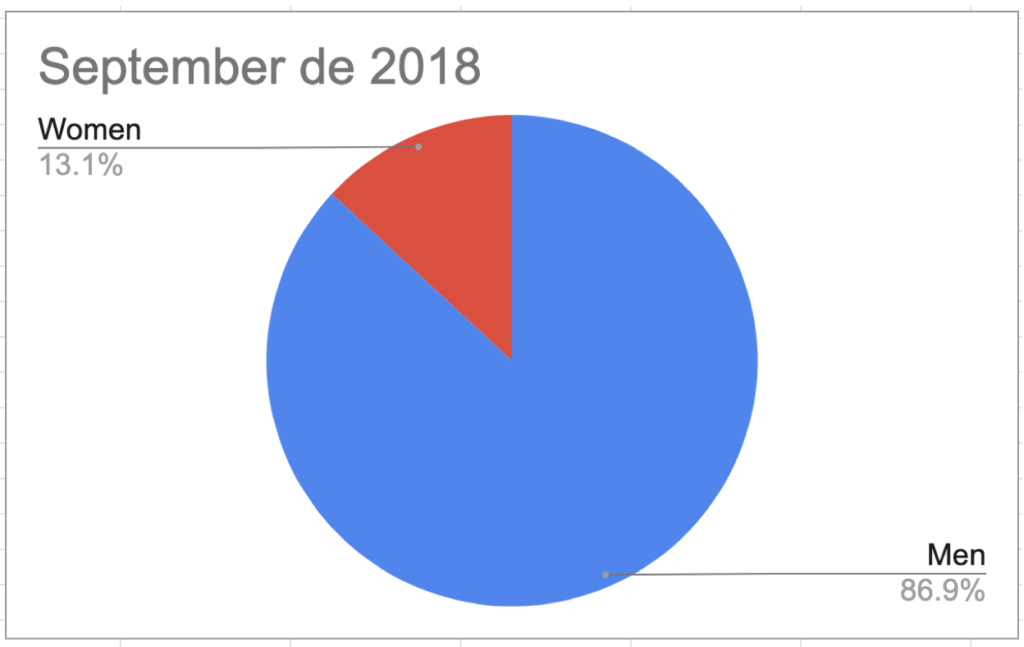
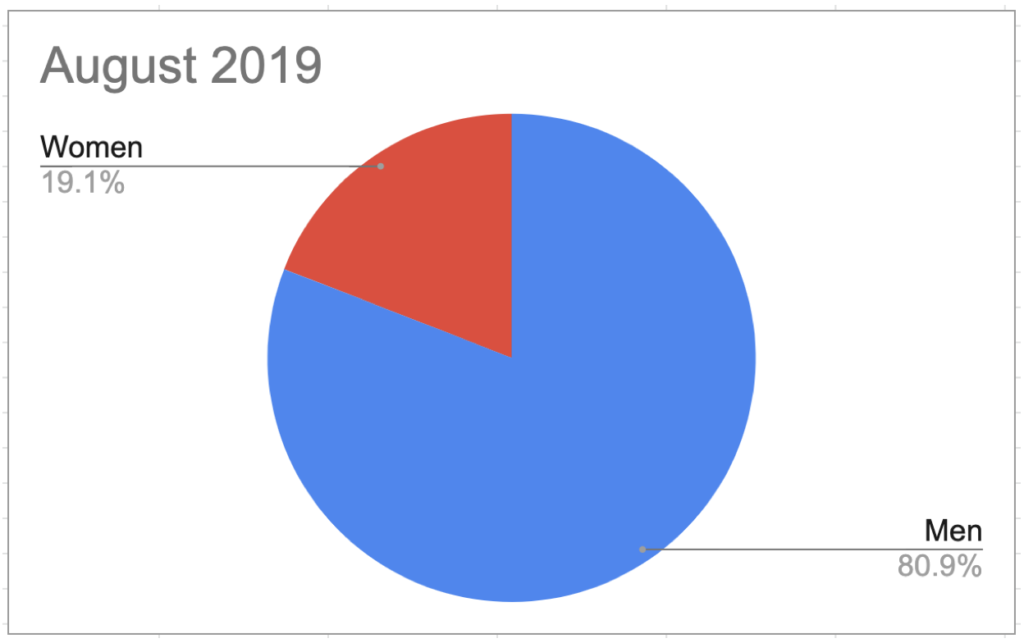

At Conta Azul, we achieved something similar between 2016 and 2018 with an increase of 6.1 percentage points.
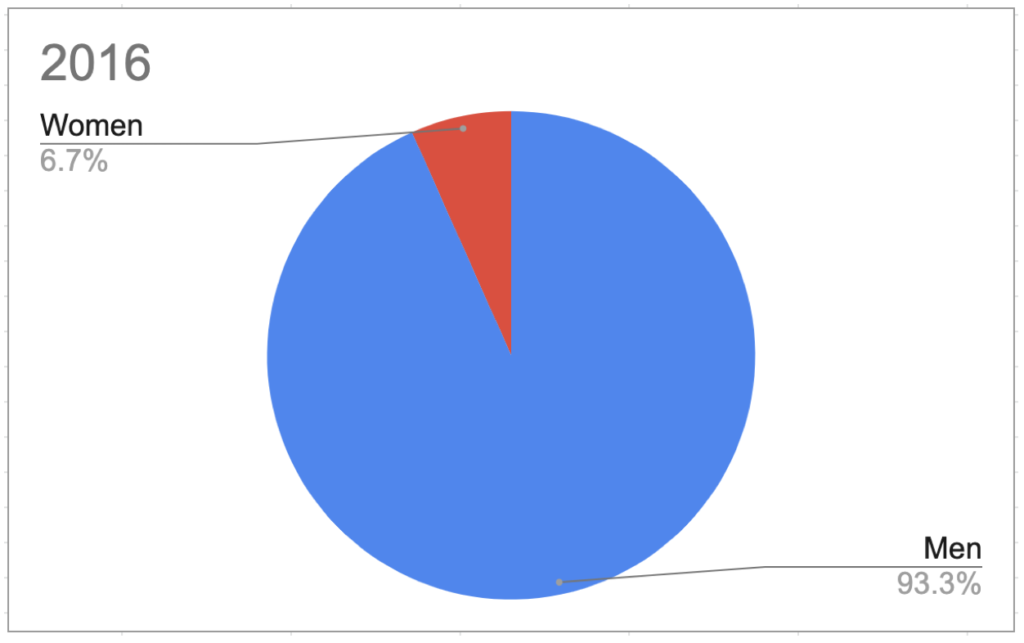
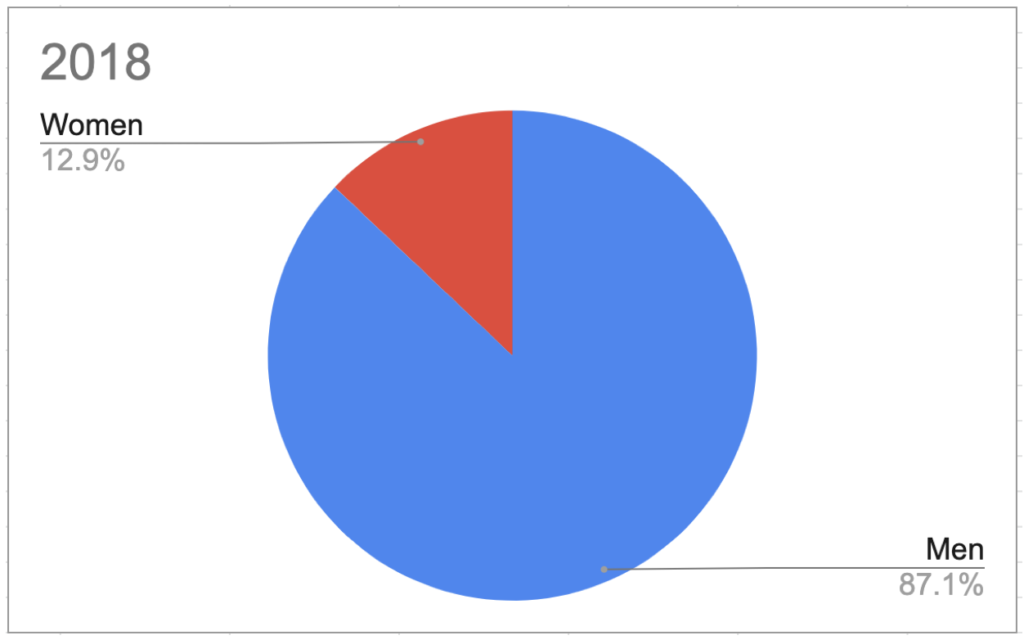
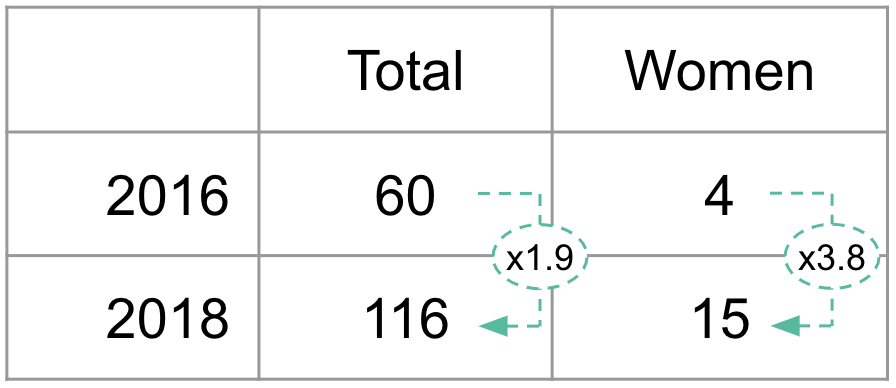
Diversity of perspectives
The product development team is comprised of software engineers, user experience designers and product managers. Each has a different perspective of what a good product is and these differences are what help to create a better product, when the differences are well resolved by the team.
Some time ago, I heard the following phrase:
The fact that two people disagree does not necessarily mean that one of them is wrong.
It really got me thinking about the diversity of perspectives. This has to do with empathy, one of the 7 essential characteristics of a product manager. Empathy is someone’s ability to step in someone else’s shoes to understand their aspirations, motivations, needs, and problems. What is her context? How does she see and hear things? What makes her understand things from this perspective?
There is a great tool called the empathy map, which aims to help teams gain a deeper view of their customers.
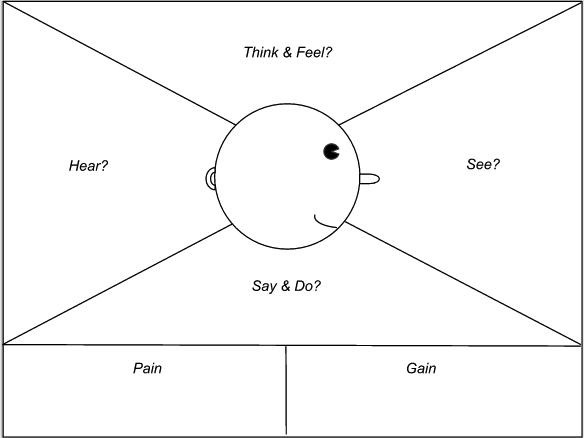
People have different backgrounds, different stories, different knowledge. We must recognize and respect these differences and understand that sometimes we will not reach an agreement, but that’s okay, as long as we respect each other’s perspective. Perhaps we can create a third perspective from the two different ones. Perhaps we can decide to try one, or both, and see and compare the results.
As long as there is respect and empathy, diversity brings many good results for everyone.
Summing up
- There are two main reasons that motivate the construction of different digital product development teams. The first is that diversity brings new points of view. The second reason is that just as the group of customers using your product is diverse, so should your product development team.
- People have different backgrounds, different stories, different knowledge. We must recognize and respect these differences and understand that sometimes we will not reach an agreement, but that’s okay, as long as we respect each other’s perspective.
- It is in our hands to make the digital product development environment more inclusive. The way for this to happen is to bring up the topic and make it part of the conversations.
With this chapter, we finish to see what culture is and what, in my opinion, are the 5 main values ​​that the whole company must have to develop successful products:
- Don’t waste time looking for culprits, focus on learning.
- Don’t compare work situations with war, nobody wants to kill anyone.
- Profit and revenue are a consequence, should not be the main focus.
- Transparency, the foundation of a high-performance team.
- Diversity, the basis of the best products.
In the next chapters, we will see four additional values ​​that, based on my experience, are the heart of digital product culture.
Missing something?
So, did you miss something in this chapter? What else would you like me to cover?
Digital Product Management Books
Do you work with digital products? Do you want to know more about how to manage a digital product to increase its chances of success? Check out my Digital Product Management bundle with my 3 books where I share what I learned during my almost 30 years of experience in creating and managing digital products:
- Startup Guide: How startups and established companies can create profitable digital products
- Product Management: How to increase the chances of success of your digital product
- Leading Product Development: The art and science of leading digital products

